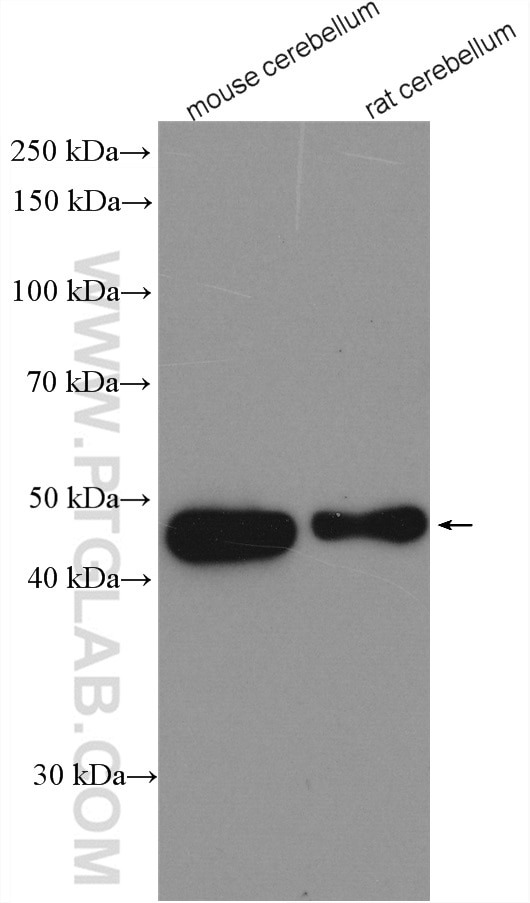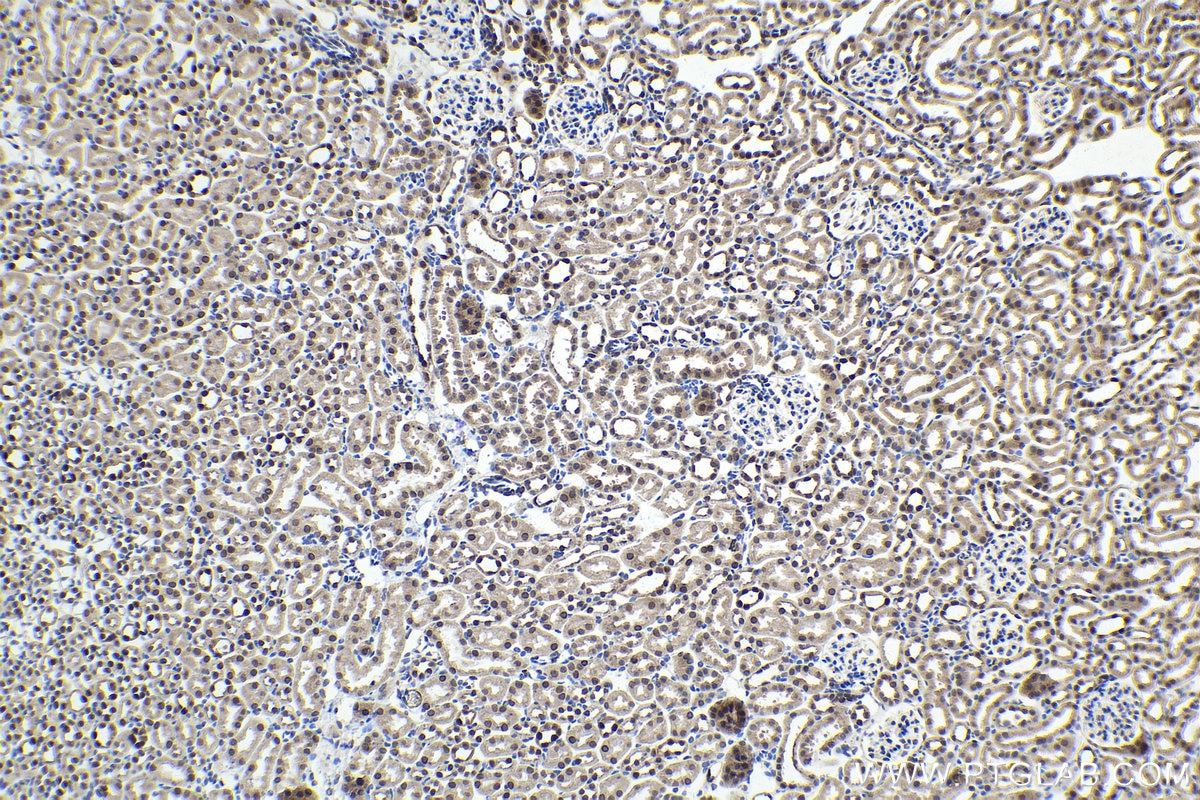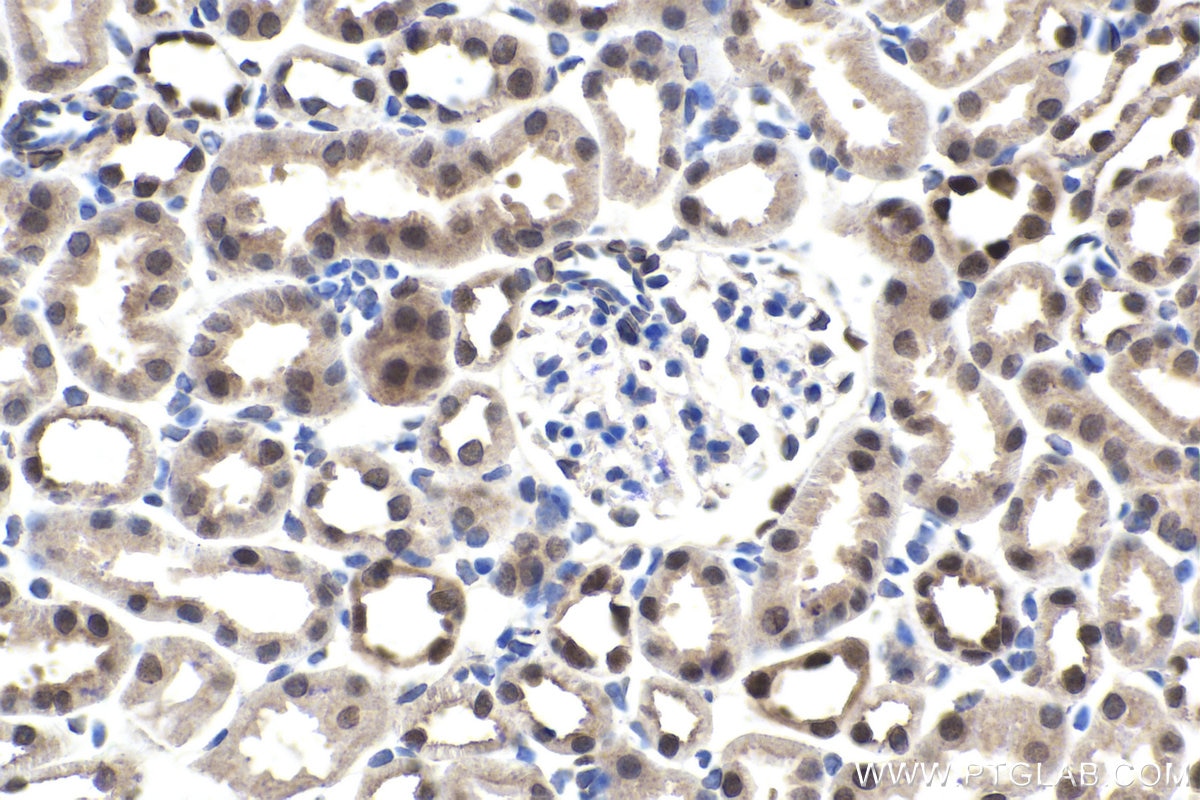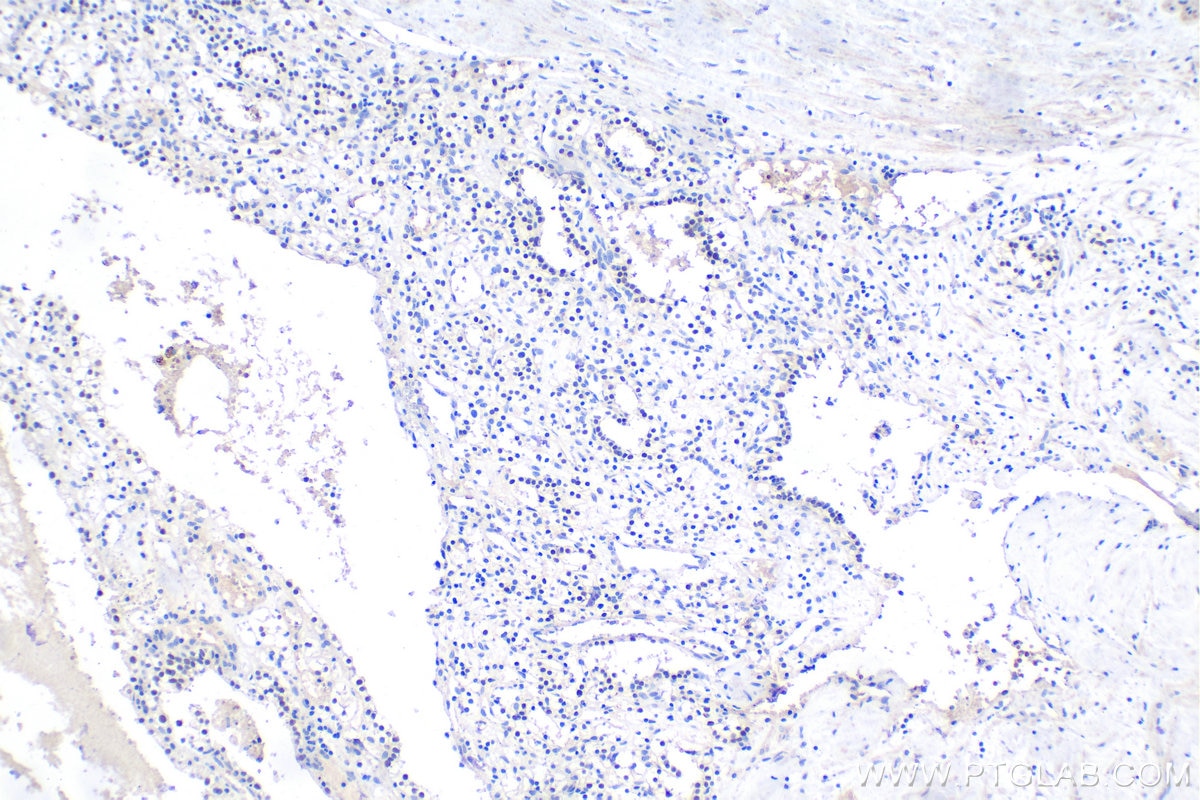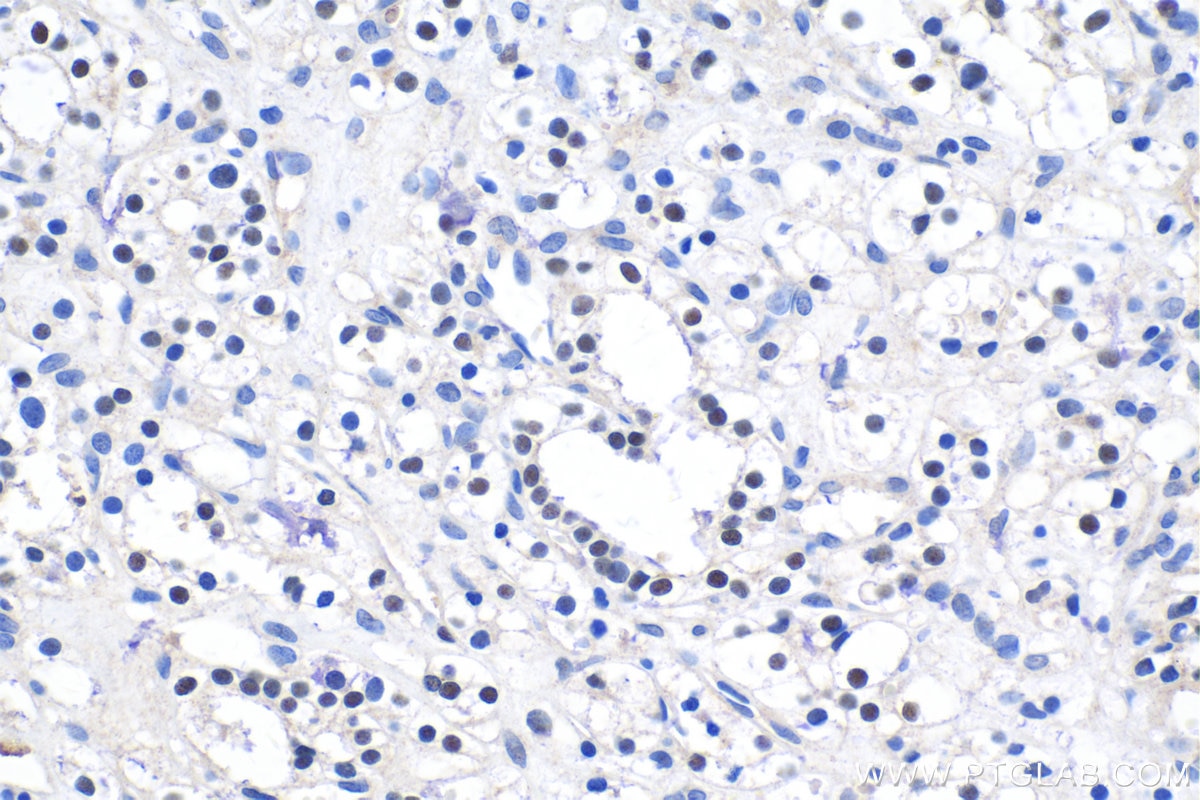Tested Applications
| Positive WB detected in | mouse cerebellum tissue, rat cerebellum tissue |
| Positive IHC detected in | mouse kidney tissue, human renal cell carcinoma tissue Note: suggested antigen retrieval with TE buffer pH 9.0; (*) Alternatively, antigen retrieval may be performed with citrate buffer pH 6.0 |
Recommended dilution
| Application | Dilution |
|---|---|
| Western Blot (WB) | WB : 1:500-1:2000 |
| Immunohistochemistry (IHC) | IHC : 1:500-1:2000 |
| It is recommended that this reagent should be titrated in each testing system to obtain optimal results. | |
| Sample-dependent, Check data in validation data gallery. | |
Published Applications
| WB | See 1 publications below |
| IHC | See 1 publications below |
| FC | See 1 publications below |
Product Information
29307-1-AP targets PAX2 in WB, IHC, ELISA applications and shows reactivity with Human, mouse, rat samples.
| Tested Reactivity | Human, mouse, rat |
| Cited Reactivity | human |
| Host / Isotype | Rabbit / IgG |
| Class | Polyclonal |
| Type | Antibody |
| Immunogen |
CatNo: Ag30717 Product name: Recombinant human PAX2 protein Source: e coli.-derived, PET28a Tag: 6*His Domain: 189-386 aa of BC148710 Sequence: GILGIPRSNGEKRKRDEVEVYTDPAHIRGGGGLHLVWTLRDVSEGSVPNGDSQSGVDSLRKHLRADTFTQQQLEALDRVFERPSYPDVFQASEHIKSEQGNEYSLPALTPGLDEVKSSLSASTNPELGSNVSGTQTYPVVTGRDMASTTLPGYPPHVPPTGQGSYPTSTLAGMVPGSEFSGNPYSHPQYTAYNEAWRF Predict reactive species |
| Full Name | paired box 2 |
| Calculated Molecular Weight | 431 aa, 46 kDa |
| Observed Molecular Weight | 45 kDa |
| GenBank Accession Number | BC148710 |
| Gene Symbol | PAX2 |
| Gene ID (NCBI) | 5076 |
| RRID | AB_2918278 |
| Conjugate | Unconjugated |
| Form | Liquid |
| Purification Method | Antigen affinity purification |
| UNIPROT ID | Q02962 |
| Storage Buffer | PBS with 0.02% sodium azide and 50% glycerol, pH 7.3. |
| Storage Conditions | Store at -20°C. Stable for one year after shipment. Aliquoting is unnecessary for -20oC storage. 20ul sizes contain 0.1% BSA. |
Background Information
PAX2 is a transcription factor, primarily expressed during embryonic development. It has a critical role in the development of the urogenital tract, the eyes, and the CNS. It plays a key role during renal development and to act as an oncogene favoring renal tumor growth. PAX2 was suggested as a sensitive and highly specific marker for renal cell carcinoma (RCC).
Protocols
| Product Specific Protocols | |
|---|---|
| IHC protocol for PAX2 antibody 29307-1-AP | Download protocol |
| WB protocol for PAX2 antibody 29307-1-AP | Download protocol |
| Standard Protocols | |
|---|---|
| Click here to view our Standard Protocols |
Publications
| Species | Application | Title |
|---|---|---|
Sci Bull (Beijing) Reprogramming of Ovarian Granulosa Cells by YAP1 Leads to Development of High-Grade Cancer with Mesenchymal Lineage and Serous Features. | ||
Cells Human iPSC-Derived Renal Cells Change Their Immunogenic Properties during Maturation: Implications for Regenerative Therapies. | ||
J Cell Mol Med Chemerin's Role in Endometrial Dysfunction: Insights From Transcriptomic Analysis |

